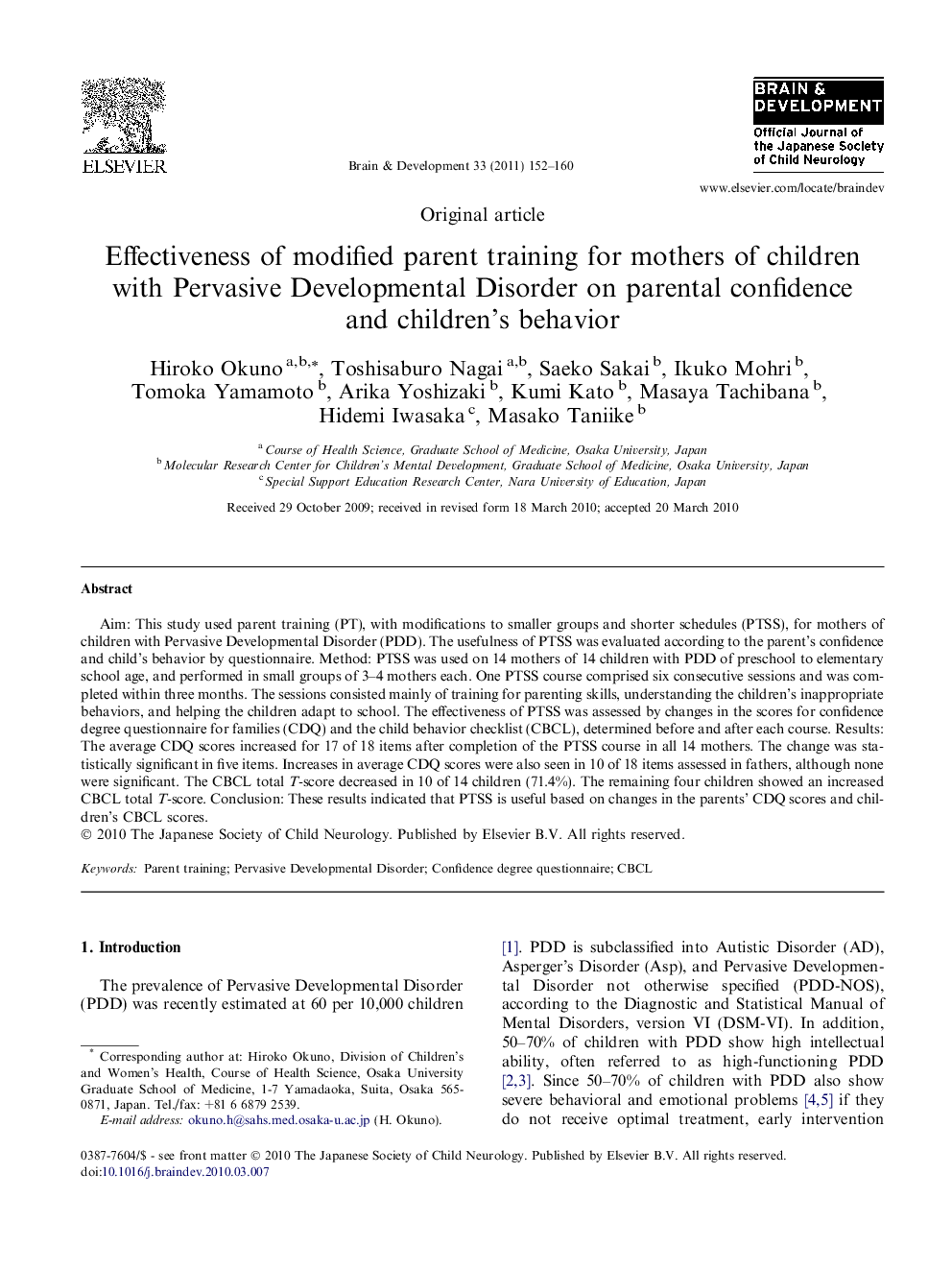| Article ID | Journal | Published Year | Pages | File Type |
|---|---|---|---|---|
| 3037753 | Brain and Development | 2011 | 9 Pages |
Aim: This study used parent training (PT), with modifications to smaller groups and shorter schedules (PTSS), for mothers of children with Pervasive Developmental Disorder (PDD). The usefulness of PTSS was evaluated according to the parent’s confidence and child’s behavior by questionnaire. Method: PTSS was used on 14 mothers of 14 children with PDD of preschool to elementary school age, and performed in small groups of 3–4 mothers each. One PTSS course comprised six consecutive sessions and was completed within three months. The sessions consisted mainly of training for parenting skills, understanding the children’s inappropriate behaviors, and helping the children adapt to school. The effectiveness of PTSS was assessed by changes in the scores for confidence degree questionnaire for families (CDQ) and the child behavior checklist (CBCL), determined before and after each course. Results: The average CDQ scores increased for 17 of 18 items after completion of the PTSS course in all 14 mothers. The change was statistically significant in five items. Increases in average CDQ scores were also seen in 10 of 18 items assessed in fathers, although none were significant. The CBCL total T-score decreased in 10 of 14 children (71.4%). The remaining four children showed an increased CBCL total T-score. Conclusion: These results indicated that PTSS is useful based on changes in the parents’ CDQ scores and children’s CBCL scores.
